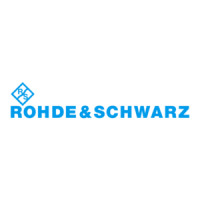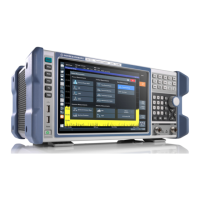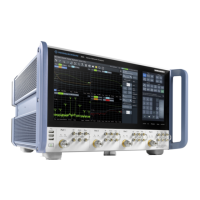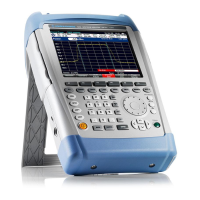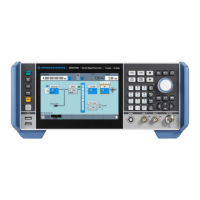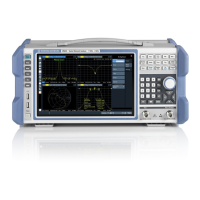R&S FSL Bluetooth Measurements (Option K8)
1300.2519.12 2.39 E-11
Overview of Transmitter Tests
Table 2–4 Basic Rate Measurements
Output Power TX Output
Spectrum –
Adjacent
Channel Power
Modulation
Characteristics
Initial Carrier
Frequency
Tolerance
Carrier
Frequency
Drift
Hop
on off off on / off on / off
Trigger
extern – – – –
Synchronization
Yes (p0), but also
possible without
no yes (p0) yes (p0) yes (p0)
Packet Type
longest supported DH1 longest supported DH1 all supported
packets
(DH1/3/5)
Payload
PRBS 9 PRBS 9 11110000
10101010
PRBS 9 10101010
Test Mode
loop back loop back loop back loop back loop back
Operating Mode
IQ mode analyzer zero
span
IQ mode IQ mode IQ mode
RBW
3 MHz 100 kHz – – –
VBW
3 MHz 300 kHz – – –
Power
supported
maximum
supported
maximum
supported
maximum
supported
maximum
not specified
Sweep Time
one complete
packet
79s per sweep
(= 100ms * 10 *
79)
one complete
packet
– one complete
packet
Sweep Count
– 10 10 (extern) 10 10
Trace Mode
Maxh Maxh – – –
Detector
Peak Aver – – –
Frequency in
MHz
low /
middle /
high
each channel low /
middle /
high
low /
middle /
high
low /
middle /
high
Span
– – – – –
Test cond
norm / ext norm / ext norm / ext norm / ext norm / ext
Results
peak and average
power
1) P
AV
< 100 mW
(20 dBm)
2) P
PK
< 200 mW
(23 dBm)
3) P
max
> P
AV
>P
min
at maximum
power step
P
AV
< 1
mW (0 dBm)
channel power of
all channels
1) P
TX
(f) – 20
dBm for |M–N| =
2
2) P
TX
(f) – 40
dBm for |M–N|
3
all 8 bit peak
deviations and
average
deviations
carrier offset
within the 4
preamble bits
carrier offsets
of the 4 bit
preamble, of all
10 bit payload
sequences;
maximum drift
rate of all 10 bit
payload
sequences at
50 µs offset
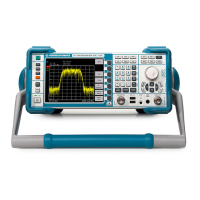
